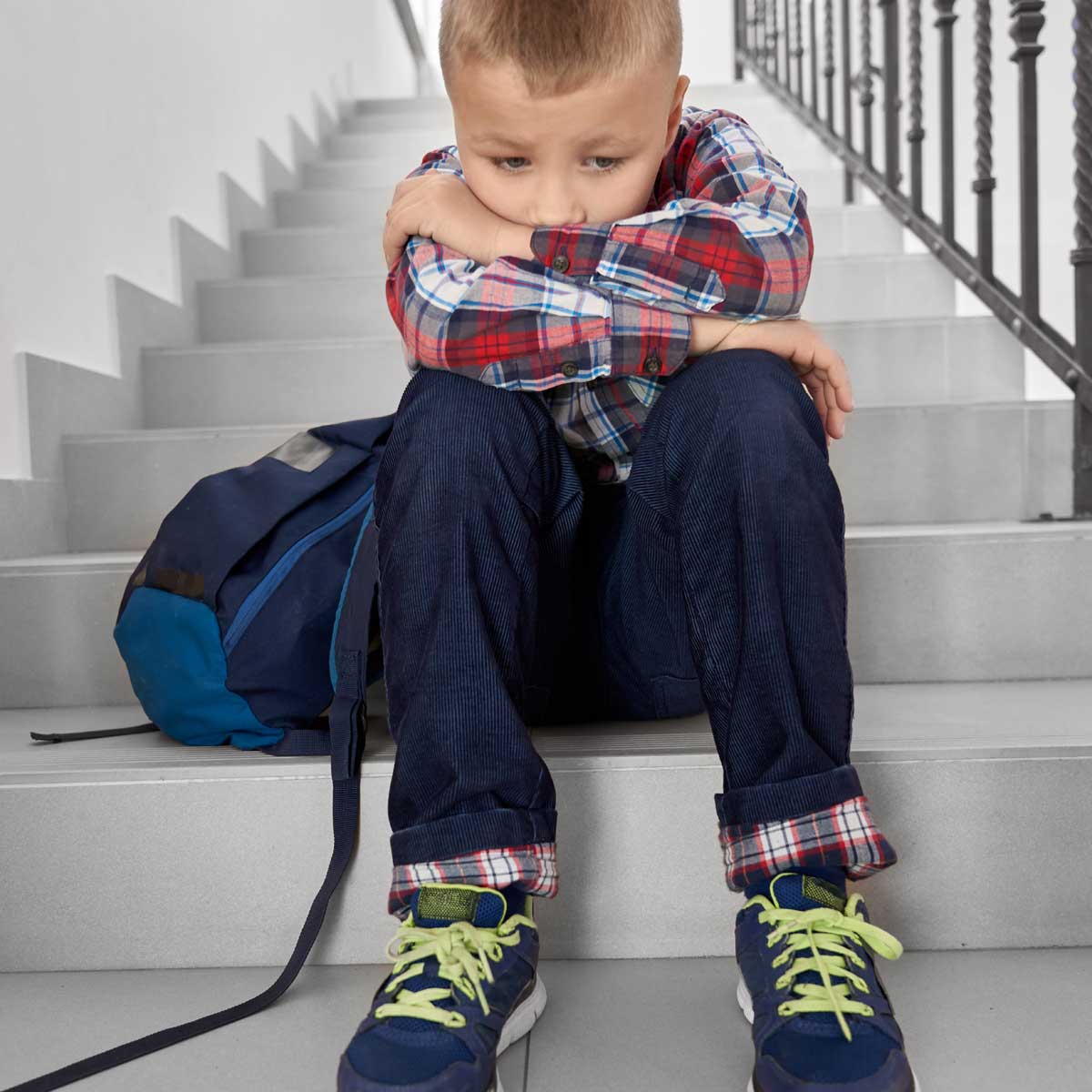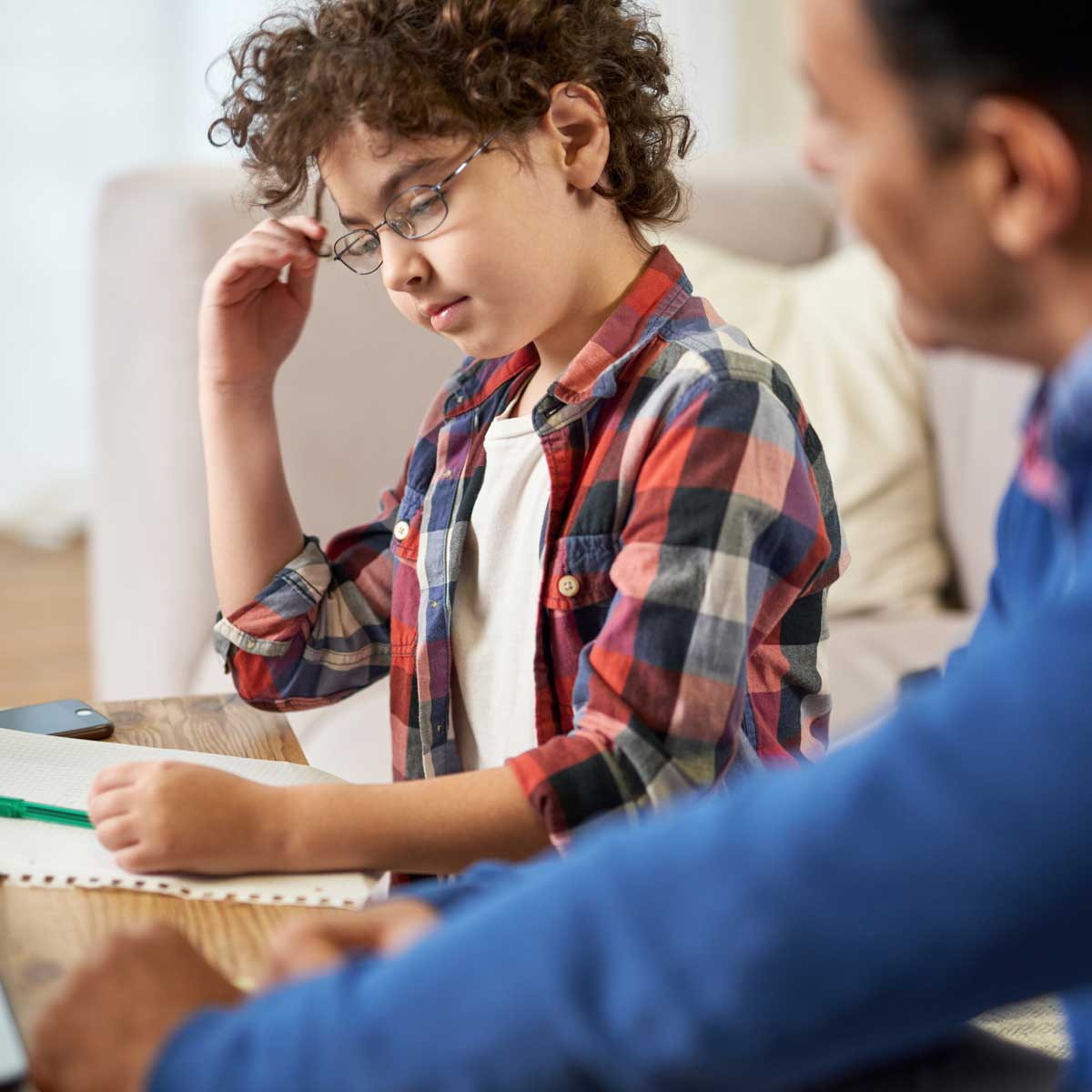Pediatric Biofeedback Therapy
It seems like worry is making my child physically ill.
Does your child complain of headaches or stomach aches on a regular basis? Do they avoid new or uncomfortable situations because of their physical ailments? When you try talking to them about their mood or behavior, do they seem more distraught? Your child is struggling to regulate their emotions and it is literally making them sick. You want to help them but it feels like the problems are insurmountable. Your child would likely benefit from a biofeedback program.

What is pediatric biofeedback therapy and how can it help my child manage stress?
Pediatric biofeedback therapy is highly effective in addressing underlying difficulties that contribute to personal, relational, and psychological issues.
Biofeedback sessions strengthen the mind and body, just like exercise. By teaching children to relax, they learn to control their physical and emotional reactions. Biofeedback can be helpful in identifying a baseline for understanding stress levels and learning better ways to respond when anxiety occurs.
Biofeedback therapy can help with anxiety, depression, ADHD, pain management, mood dysregulation, behavior difficulties, bladder control and incontinence issues, and improving sleep. As your child learns to focus their thoughts in a positive direction, it can also have an impact on your child’s self-esteem and confidence resulting in them being happier and moving toward new and rewarding experiences.

Due to the focus on the mind-body connection, it works well with CBT, DBT, EMDR, mindfulness, and other therapy approaches.
Biofeedback elicits useful information that can be applied to help children learn voluntary self-control over their body, identify their progress, including what is and is not working to help them manage stress.
How does biofeedback help children with anxiety?
When children worry excessively, their brain sends messages to their body that says “I’m not in control and need to protect myself.” This response commonly known as fight-or-flight results in internal body changes such as perspiration, increased heart rate, muscle tension, reduced blood the hands and feed, dilated pupils, and increased blood sugar levels.
Your child experiences these changes as stomachaches, shaky feelings in their arms or legs, shortness of breath, chest pain or tightness, muscles stiffness, dry mouth, sweaty or cold hands, and headaches among other ailments.
These experiences can be very scary for children, making them more fearful and result in more worrying and negative physical symptoms.

Biofeedback Breaks the Worry Cycle
As you can imagine, this worry cycle can be difficult to break and result in the child constantly feeling like they are on defense. Pediatric biofeedback therapy allows children to recognize what is going on inside of them and feel more in control of how their mind and body reacts to situations.
Biofeedback sessions help children learn to recognize when their worry occurs and how it makes their body react allowing them to actually visualize the changes going on inside that make them become tense or frightened.
They can also learn cognitive responses to decrease their worry and will also result in a reduction in their physical reactions. In addition, biofeedback therapists teach children relaxation techniques that help them reduce anxiety and tension, such as refocusing and changing their thinking, visualizing positive reactions, and deep breathing and muscle relaxation exercises.

After practicing biofeedback during a number of therapy sessions, your child will start to understand how their thoughts are connected to how their body reacts. They can then learn how new ways of thinking and behaving can actually decrease physical symptoms
Just like a football player that draws out and practices the plays ahead of time, your child can feel prepared when stressful situations occur. They will be able to anticipate their worry response, respond offensively and visualize sending positive signals to their body showing that they know how to manage difficult situations and do not need additional protection.
Practicing biofeedback at home.
In our experience, pediatric biofeedback therapy works best when combined with other cognitive and behavioral approaches. There are many apps and tools on the market for monitoring heart rate and stress levels in children and adults. They may be helpful to measure your body’s reactions and recognize situations that cause stress among other short-term benefits. However, many do not teach you strategies to change your thinking and behavior so that you can stress less as a pediatric biofeedback therapist would.
In order to make meaningful and lasting change, you need a team of licensed mental health professionals that will use biofeedback in a tailored approach designed to help your child learn ways to control their worry and react more positively.

How do we apply biofeedback during therapy sessions?
Biofeedback programs help your child or adolescent learn to identify their mood and stress levels. Your child’s therapist will help them assess their mood prior to talking about stressful situations. They will then discuss stress management strategies. The therapist will also use relaxation techniques, such as using deep breathing, hypnosis, imagery.
At the end of the session, your child’s stress level will be assessed again. Your child’s therapist will discuss your child’s thoughts and reactions to the discussion and activities, and what may have interfered with lowering stress. They will also discuss how your child can practice applying strategies during the week.
With practice and more insight into their anxiety, this will help your child begin to gain control over their worries and biofeedback therapy can help improve your child’s life so they can feel lighter, happier, confident, and ready to face new challenges that come their way with confidence.

Want to know where to start?
In our work together, we will uncover what is missing from your child’s life, what’s holding them back in worry and despair, and what are the ways we can help them move toward a place of happiness and fulfillment.
We provide convenient online sessions.
Schedule An AppointmentContact Us
